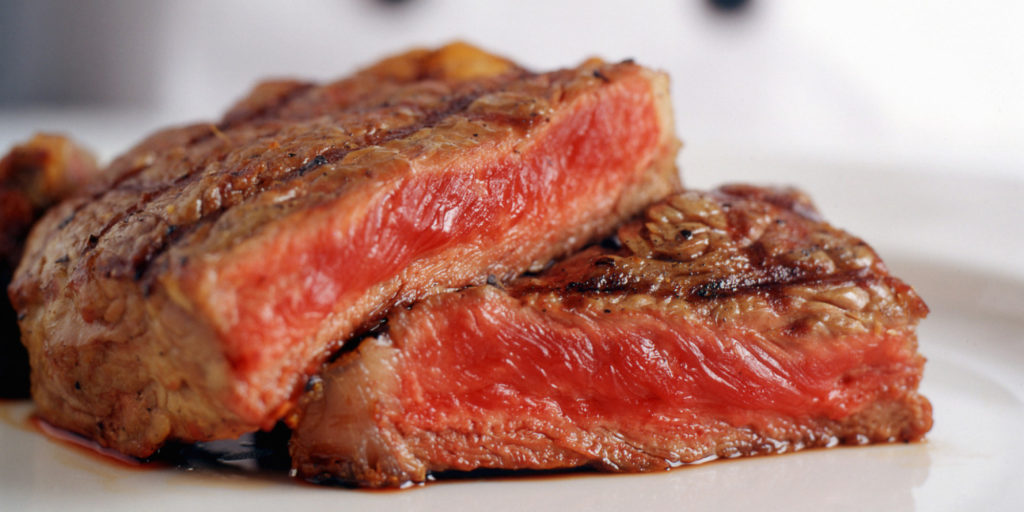Do you enjoy eating steak that is cooked until it is just rare or medium-rare? Not everyone loves their steak done this way, I’m sure. It’s one of those acquired tastes. Eating your stake rare has also been a controversial choice, as it has potential for some health risks (to be discussed soon!). On the other hand, there might be some benefits to eating rare steak. What are they? Here we find out.
Less HCAs
Cooking meat by smoking or grilling produces heterocyclic amines, or HCAs. These are chemicals that form when you cook meat directly over an open flame or in extreme heat. According to the National Cancer Institute, HCAs can cause cancer in animals, although no studies exist on whether the effect is the same in humans. But why risk it, right? Steaks done rare contain less HCAs so any potential cancer risk is reduced, hence, a better alternative.
Better Digested
You will be surprised to discover that well-cooked meat is actually harder to digest than meat cooked rare. This fact is supported by a study in the “Molecular Nutrition & Food Research” journal back in 2006. Why so, you ask? They proposed theory is that it’s probably due to the salt, oil, and other items added to the meat during the cooking process. Rare meat may have the same ingredients but these are less likely to “sink in” because of the shorter cooking time. The hotter the cooking process, the harder the meat is to digest.
Proteins and Enzymes
Thoroughly cooking destroys some of the healthy proteins and enzymes present in meat. Some of these enzymes are essential to the body, meaning your body can’t produce them, hence, you need obtain them from somewhere. When you cook meat, you’re killing these proteins and enzymes, so the food is not as nutritious as it was before. In the same study mentioned above, they also found out that thoroughly cooked meat lost a small amount of amino acid content (around 6%) compared to meat cooked rare. However, there are surely still some amounts of proteins that remain despite cooking thoroughly.
A Word of Caution
These health benefits are amazing, truly. However, there are some risks that still loom. To prevent getting food poisoning, follow these pieces of advice:
- Steaks should be cooked to at least 145 degrees Fahrenheit at the center point.
- A better approach is by simply checking the temperature of your meat to assure you’re not undercooking or overcooking it.
- A food thermometer helps guarantee you’re cooking meat until “just-right” doneness.
- Wash your hands right away after touching uncooked meat.
- Do wash any utensils or dishes that touched the meat before it was cooked.
- Wrap cooked food and place it in the refrigerator or freezer if you are not serving it right away.
- DO NOT eat steak that has already sat out at room temperature for more than two hours.
Also, pregnant women, children, and those with a compromised immune system, should avoid eating rare steak. Stick around to see the potential health risks of eating rare steak.


Leave a Reply